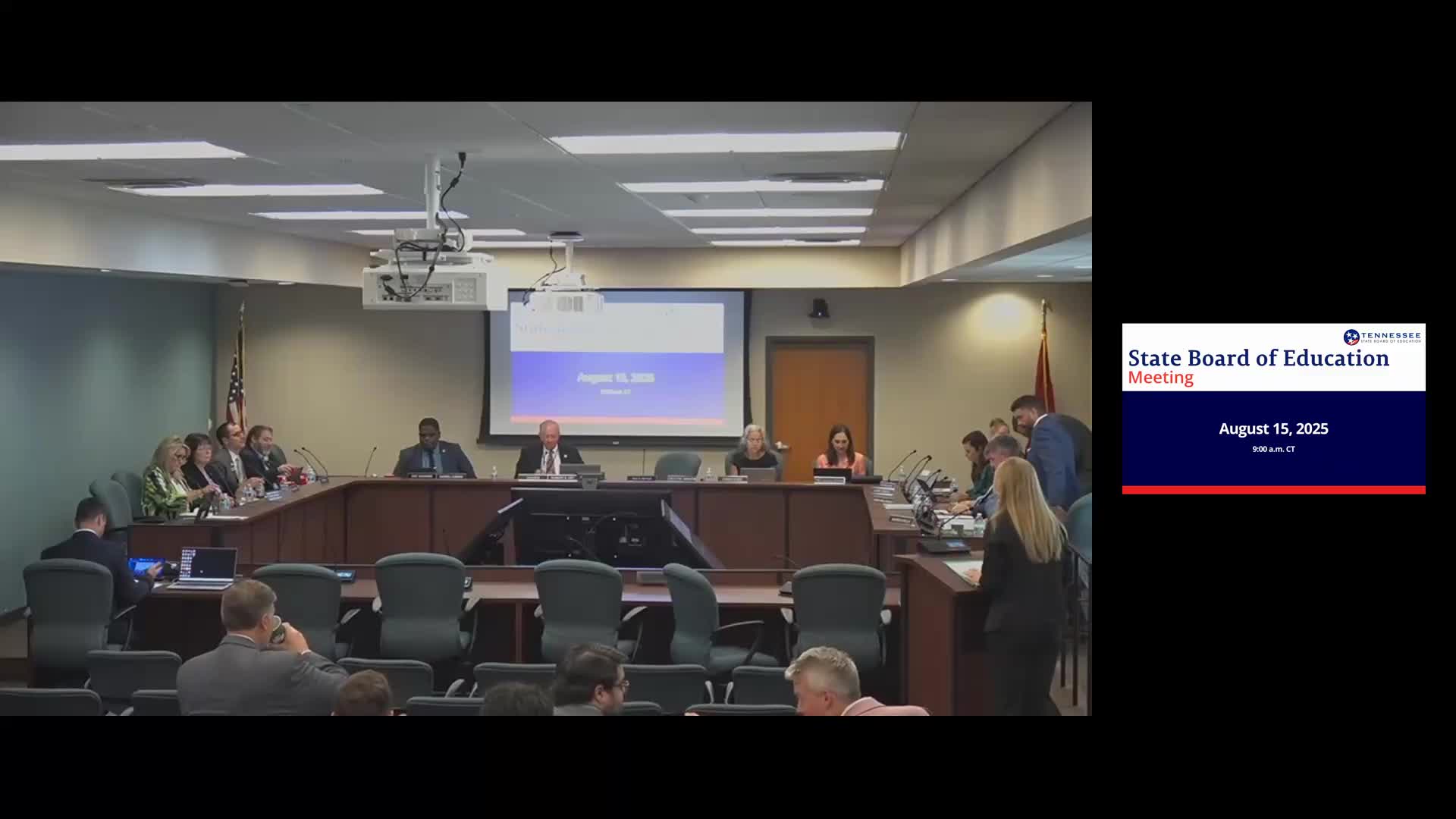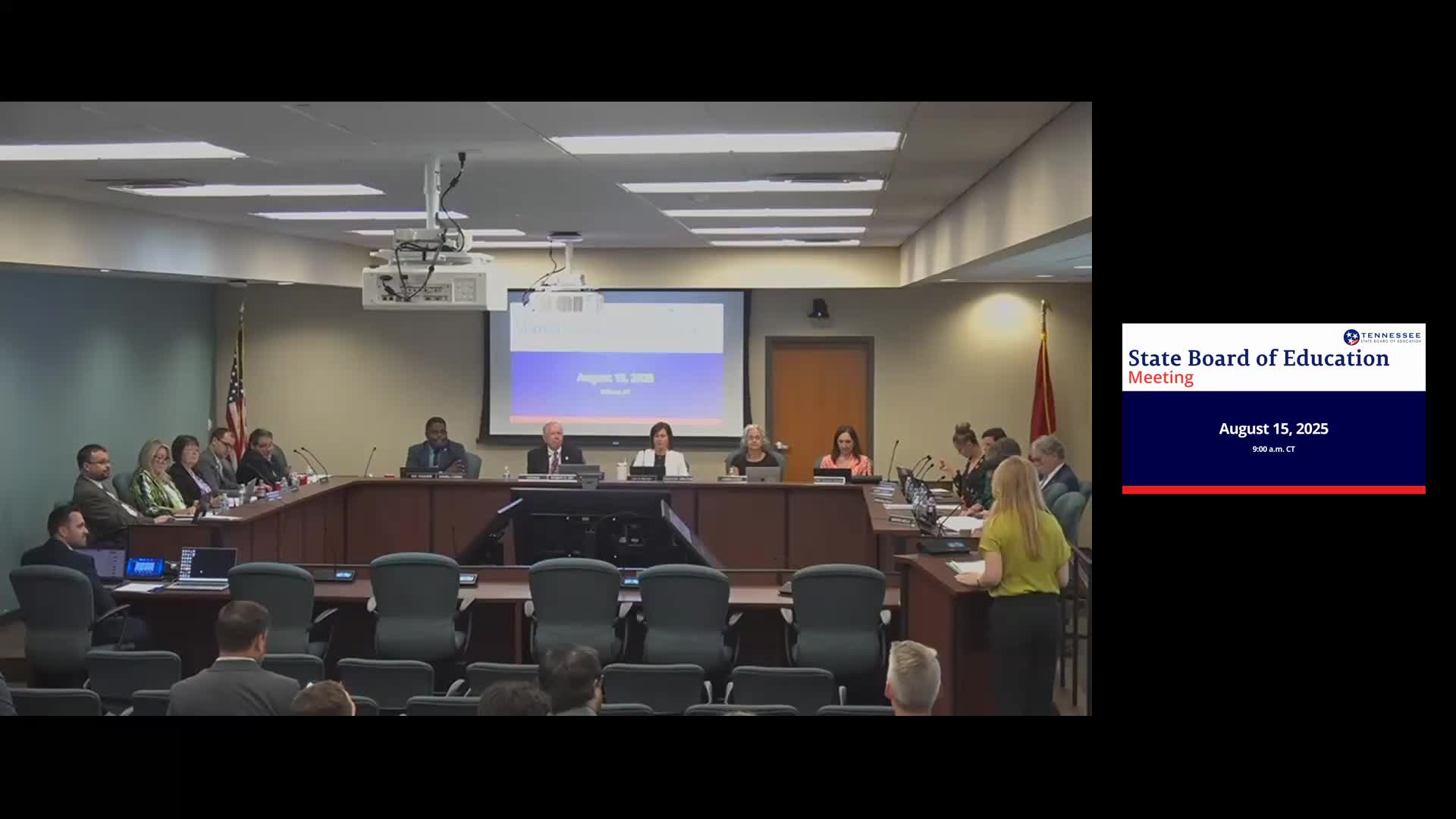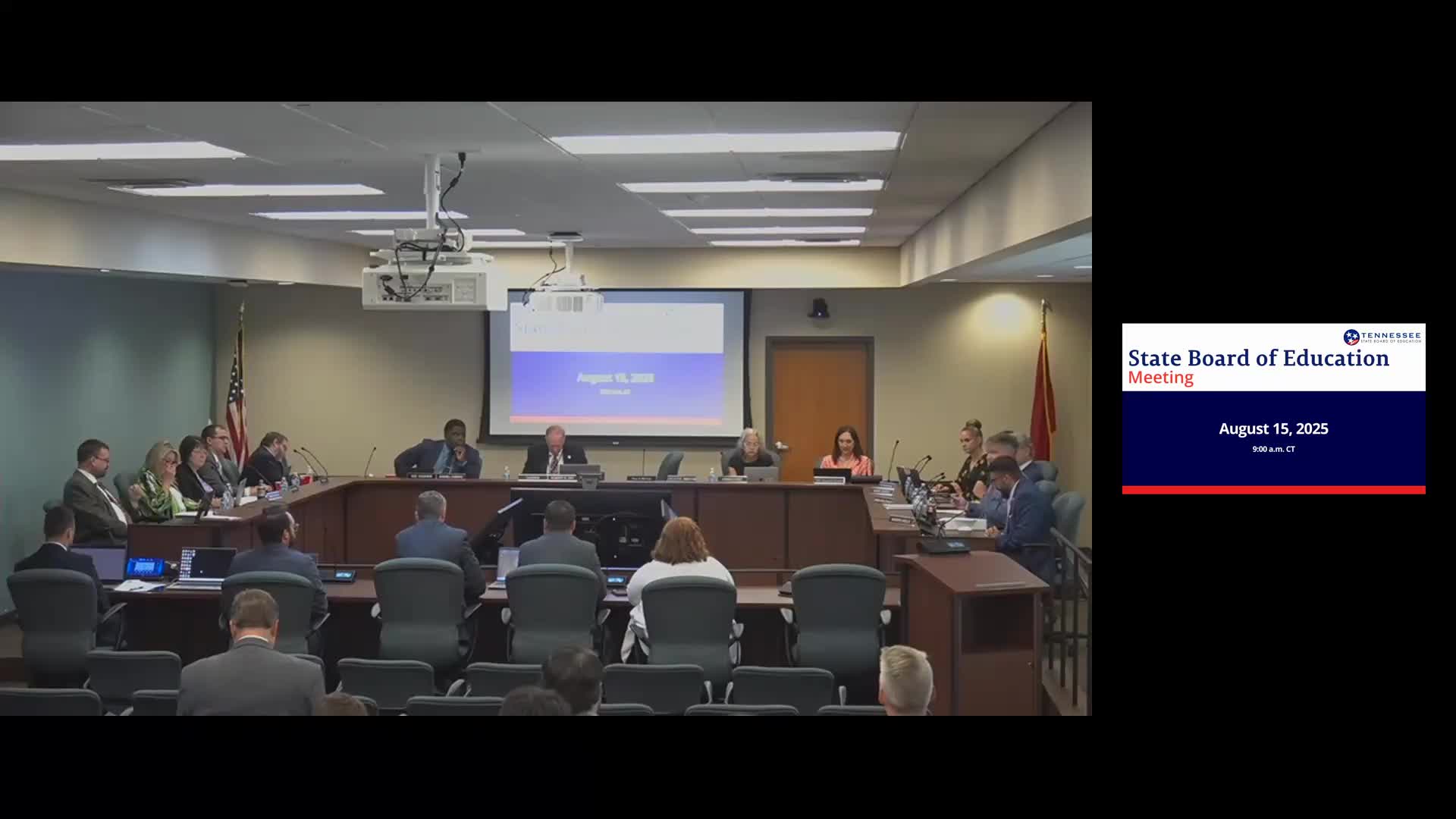Article not found
This article is no longer available. But don't worry—we've gathered other articles that discuss the same topic.

State Board approves rule and policy package including licensure, charter, PE and accountability hearing rules

State report: virtual public schools underperform in growth metrics, board seeks enrollment and intervention data

